Document Type
Article
Publication Date
8-17-2016
Abstract
In Irresolute Testators Clear and Convincing Wills Law Professor Jane Baron draws attention to a conflict between the mechanics of the law of wills and the realities of testation Baron observes that the law of wills is designed to be used as a tool by resolute and rationale testators to communicate their intent regarding the distribution of property upon death However the law's archetypical testator does not represent the many real testators who are irresolute and irrational those possessing incoherent and only partially formed thoughts regarding the disposition of their estatesBased upon the disconnect between the law's paradigm of resolute willmaking and the irresoluteness of testation in the real world Baron argues that reforms that have given probate courts discretion to correct mistakes in testation do not function appropriately For instance Baron argues that the harmless error rule which allows courts to excuse defects in a testator's compliance with willexecution formalities when the testator's intent is established by clear and convincing evidence does not meaningfully limit probate courts' discretion to correct mistakes Specifically she argues that many courts are concerned with not only the technical mistakes of resolute testators but also the more troubling mistakes of irresolute testators and consequently these courts overreach the boundaries of the harmless error ruleThis essay acknowledges Baron's insight regarding the tension between the law and reality but questions whether this tension renders the harmless error rule and its clear and convincing evidence standard ineffective More particularly this essay argues that despite potential overreaching by some courts the clear and convincing evidence standard likely operates in the way that reformers intended and that the harmless error rule represents an improvement upon the conventional law of will execution
Recommended Citation
Glover, Mark, "In Defense of the Harmless Error Rule's Clear and Convincing Evidence Standard: A Response to Professor Baron" (2016). Faculty Articles. 55.
https://scholarship.law.uwyo.edu/faculty_articles/55
First Page
288

